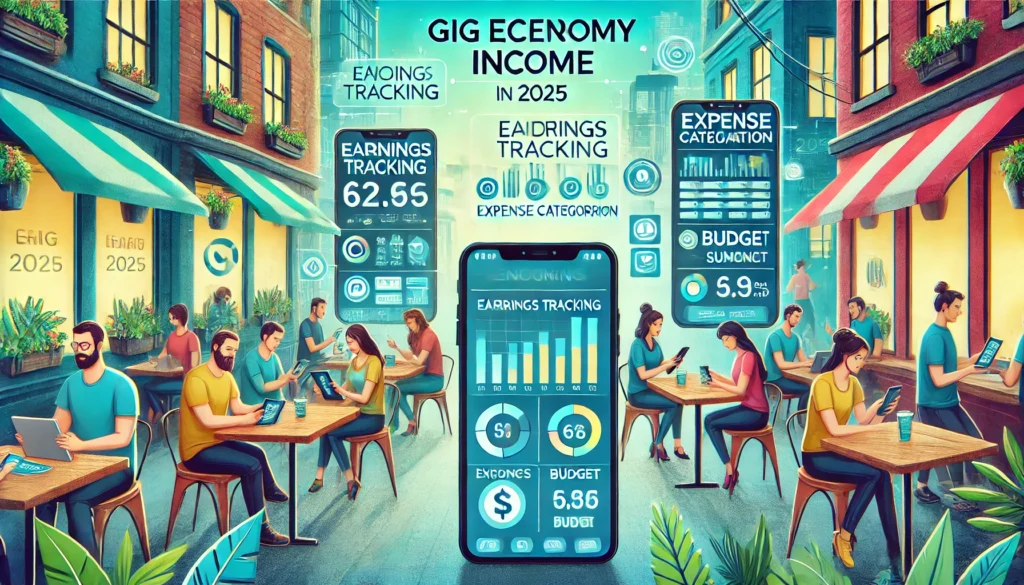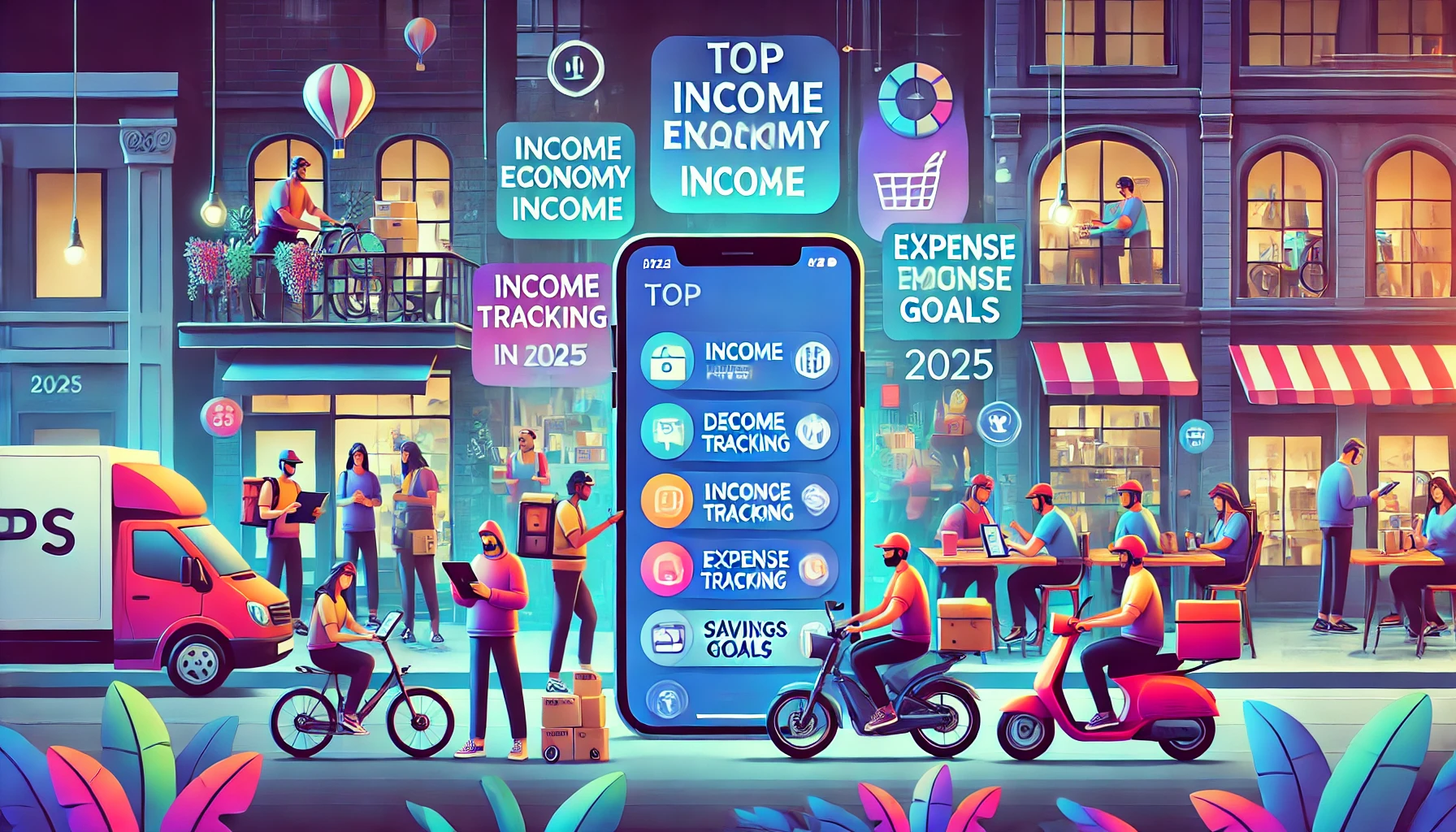The gig economy continues to thrive, with freelancers and independent contractors forming a significant part of the workforce. Managing income from multiple sources can be challenging, but innovative apps are here to simplify financial tracking and planning for gig workers in 2025. These gig economy income tools are essential for ensuring tax compliance, tracking expenses, and optimizing income.
The Importance of Income Management in the Gig Economy

Freelancers often juggle multiple clients, contracts, and payment methods. Without proper tracking, income streams can quickly become overwhelming. Financial tools designed for gig workers not only help manage this complexity but also provide clarity on earnings and expenses, enabling better financial decisions and planning for the future. Therefore, using gig economy income tools is crucial.
Best Apps for Gig Workers
- QuickBooks Self-Employed
QuickBooks Self-Employed is a go-to app for freelancers looking to organize their finances. It simplifies expense tracking, categorizes spending for tax purposes, and calculates estimated taxes. Its seamless integration with TurboTax makes filing taxes effortless, making it one of the best gig economy income tools available. - Hurdlr
Hurdlr is ideal for gig workers who want real-time financial insights. It tracks expenses, income, and mileage, offering automatic tax calculations. Its advanced analytics give users a clear picture of their financial health. - Wave
Wave is a free app offering robust invoicing and expense tracking capabilities. Perfect for small-scale freelancers, Wave’s user-friendly interface simplifies managing income and payments, making it a valuable gig economy income tool. - Strides
Strides focuses on goal setting and tracking income against financial goals. It’s an excellent choice for gig workers aiming to budget and save effectively. - Zeno
Zeno helps gig workers track time spent on projects and links earnings directly to productivity. This unique feature makes it invaluable for freelancers looking to optimize their workflows.
Benefits of Using Financial Tools
Adopting these gig economy income tools provides gig workers with several advantages, such as improved income visibility, simplified tax filing, and better budgeting. In an industry where income can fluctuate, these tools ensure freelancers remain financially stable and prepared.
The Future of Gig Economy Finance
As the gig economy grows, we can expect even more tailored solutions for gig workers. AI-powered apps with predictive analytics and blockchain-based payment platforms are likely to become the norm, further simplifying financial management.
To explore more tools for freelancers, check out our article on 7 Game-Changing Fintech Apps You’ll Wish You Found Sooner



